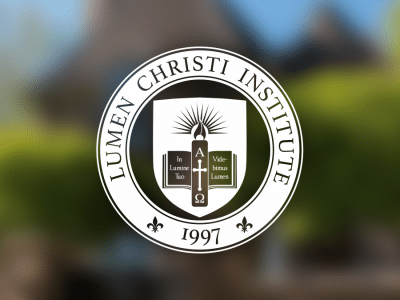News & Media
From 2012 to 2020, Fr. Paul Mankowski, SJ delivered hundreds of lectures and master classes at the Lumen Christi Institute. Seeking to share the depth of his scholarship, this podcast offers many of his lectures (edited for coherence and quality) to the public in digital format for the first time. The first season will feature a course that Fr. Mankowski gave on Joseph Ratzinger’s Jesus of Nazareth and dozens of lectures centered around the books of the Bible (including Genesis, many of the prophets, the Gospel of Matthew, and St. Paul’s Letter to the Romans). Episodes will be released on Mondays, Wednesdays, and Fridays from September through December. To conclude the season, we’ll offer one or two interviews with people who knew Fr. Mankowski well and can offer an entry point to his person and scholarship.
Aquinas is almost exclusively regarded as an outstanding scholastic philosopher and theologian. But what is little known is that he was also a master of the spiritual life and a very considerable poet, perhaps even the greatest Latin poet of
Dr. Gary Anderson (author of Sin: A History, and Charity) is featured. When modern persons think about assistance for the poor the two major categories that tend to dominate are the motivations of the donor (altruism) and the effects of
In many ways, the supposed conflict between science and religion is really a conflict between “scientific materialism” and religion. The lecture will review the story of the relation between Christianity and science, discuss several discoveries of the twentieth century (primarily
While Roman civilization collapsed around him, Benedict a fifth-century monk and abbot authored his Rule for monks and set forth a way of life for the monasteries that would become one of the few lights of wisdom and civility in
